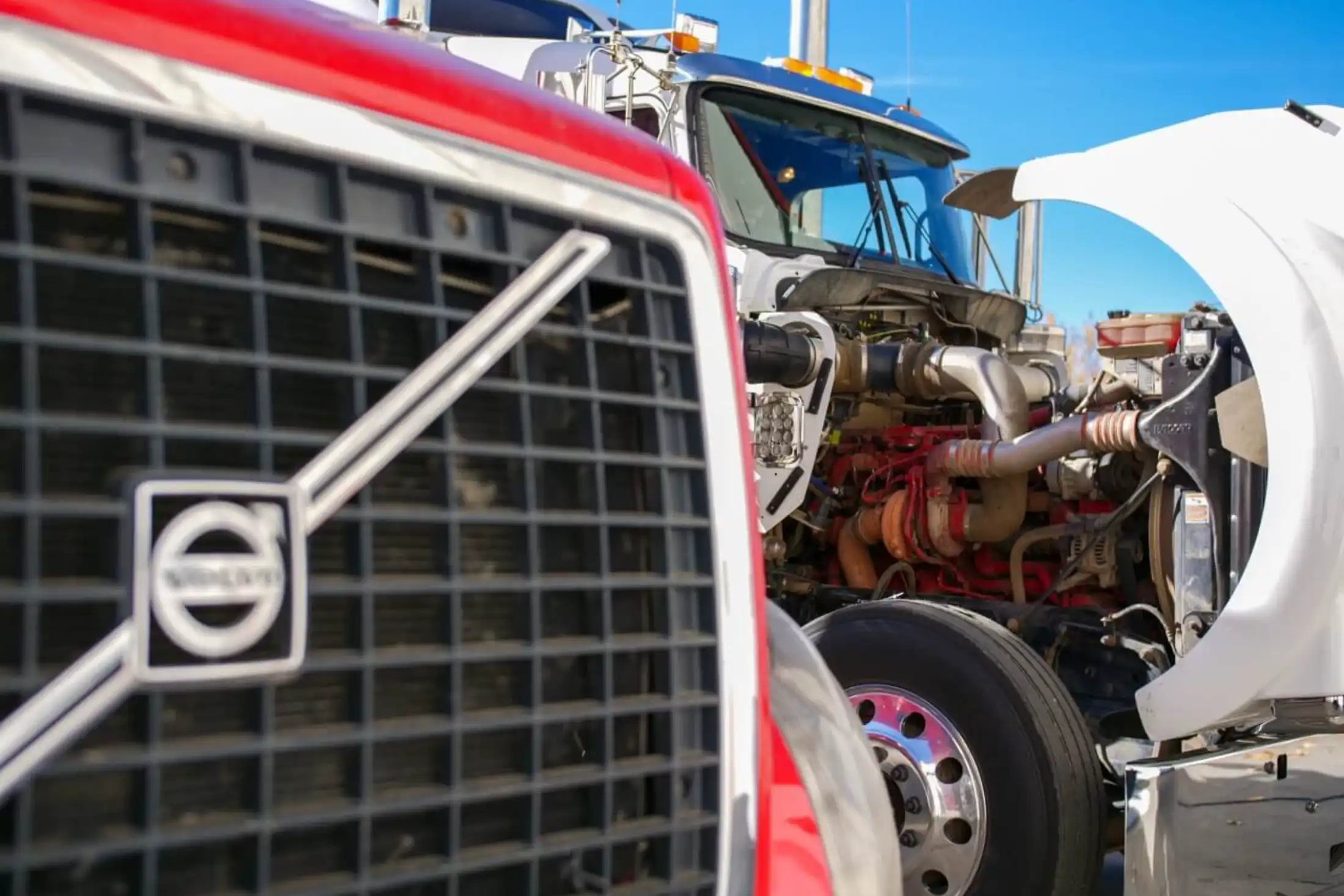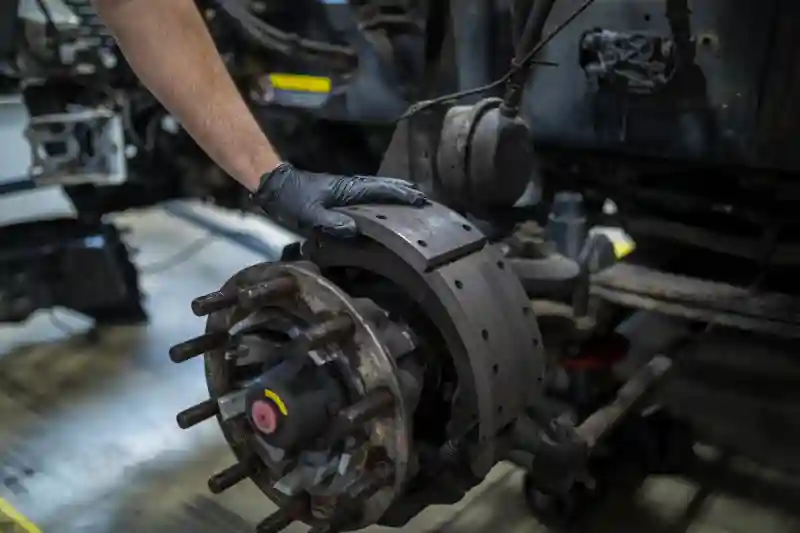If you own a Peterbilt truck, you should always be mindful of its maintenance. Unexpected issues can cause major problems to ultimately sideline you and your Peterbilt truck. This is why we thought of sharing a list of the most common Peterbilt truck breakdowns and repair tips with you.
A Malfunctioning Alternator & Dead Battery
As your engine runs, your alternator will charge your battery and power your Peterbilt’s various electrical systems. If this alternator fails or malfunctions, your Peterbilt will be operating based on the power stored in your battery. Most trucks will be able to drive for 45 minutes or so before breaking down. If you suddenly lose power and come to a stop, you most likely have a worn alternator.
If your Peterbilt simply won’t start, chances are you have an issue with your battery. Batteries do age and become less effective; under regular usage, they generally fail every five years. Extremes of heat or cold, as well as regularly draining and recharging the battery, may speed up this process. To aid in avoiding this issue:
- Regularly check the battery terminals to ensure they are tight and corrosion-free. Battery terminal protection spray is often available at truck parts shops, but you may also use petroleum jelly or a dab of grease in its place.
- Keep the battery's top dry and spotless.
- Take your Peterbilt truck for a lengthy journey sometimes to assist the alternator in completely charging the battery if you usually make short excursions and start the Peterbilt truck.
- Before attempting to start the engine, make sure that all electrical devices (lights, heater blower, rear defroster, etc.) are off.
- Every so often, check the alternator belt's tightness.
- Have the battery checked as soon as a problem arises, such as a delayed start or dim headlights. Regardless, test it at least once a year.
A flat tire or further wheel/tire damage
It is difficult to prevent every flat tire brought on by errant road debris. However, with the right safeguards, you may prevent early wear, blowouts, and the tire from falling off the bead. To aid in preventing these issues:
- Regularly check the tire pressure and overall condition.
- Make sure you always have a spare tire ready to go.
- Set the tire pressures to the suggested "full-load" levels if you're hauling a lot more weight, and restore them to normal once you've unloaded.
- When parking or driving, if a wheel "curbs," be sure to examine the tire and wheel as quickly as you can.
- Think about bringing some tire "quick repair" foam with you.
- Make sure the jack, lug wrench, and (if necessary) the equipment for locking wheel nuts are in the Peterbilt truck and that you are familiar with their usage.
A Malfunctioning Starter Motor
Some Peterbilt trucks struggle to reach 50,000 miles, while others can go up to 250.000 miles without a starting issue. One of the most common reasons why your truck isn’t starting is a bad starter motor in your Peterbilt. The starting motor may be failing if any of the following symptoms appear:
- When attempting to start the engine, there are metallic grinding sounds.
- You attempt to turn the engine on, but it turns more slowly than normal (which might also indicate a battery problem).
- When the key is turned to the "start" position, the engine doesn't start, but a click can be heard from below (which might also indicate a battery problem).
Using the incorrect kind of fuel or running out of fuel
It is difficult to totally prevent running out of diesel, which happens to everyone at some point in their life. Although it happens seldom, sometimes a diesel-powered Peterbilt truck may simply run out of diesel. If you take the following steps, you can easily prevent both of these issues:
- Before every lengthy trip and before it becomes chilly and dark outdoors, fill up on petrol.
- If you are in an unknown region, keep an eye on your diesel gauge and fill it up before the warning light turns on.
- When the gauge reaches 1/4 tank, if you're driving on a remote road with few gas stations, you may want to stop at any station you come across.
- Make sure you are aware of the kind and grade of diesel required whether you are operating a new Peterbilt truck, a rented Peterbilt truck, or a borrowed Peterbilt truck.
Damaged clutch cables
This only applies to Peterbilt trucks with manual transmissions, and even some of them use hydraulic clutches rather than cable-operated ones. The clutch cannot be disengaged if the clutch cable breaks. Don't worry; you should still be able to push the shifter into neutral and roll to a halt without suffering any harm. When having your oil changed, and tires rotated, ensure sure the clutch cable is inspected and greased to prevent problems. There are many warning indicators of an impending issue:
- When you depress the clutch pedal, the clutch "feels odd" or requires extra effort.
- When in its relaxed posture, the pedal seems to be either higher or lower than usual.
- When shifting gears, the gears grind, which can indicate that a stretched cable isn't disengaging correctly.
Defective Glow Plugs
Glow plugs are designed to heat the air and diesel fuel mixture that enters your combustion chamber to encourage combustion. If these plugs fail, you may have a hard time starting your Peterbilt truck. This is especially true if it’s very cold outside. Do keep in mind that your engine can start without glow plugs, it’s just a lot more difficult.
Final words
As the owner of a Peterbilt truck, you may keep these in mind and work on the truck accordingly. This will help you to keep your truck up and running on the road without giving you any issues at all.










